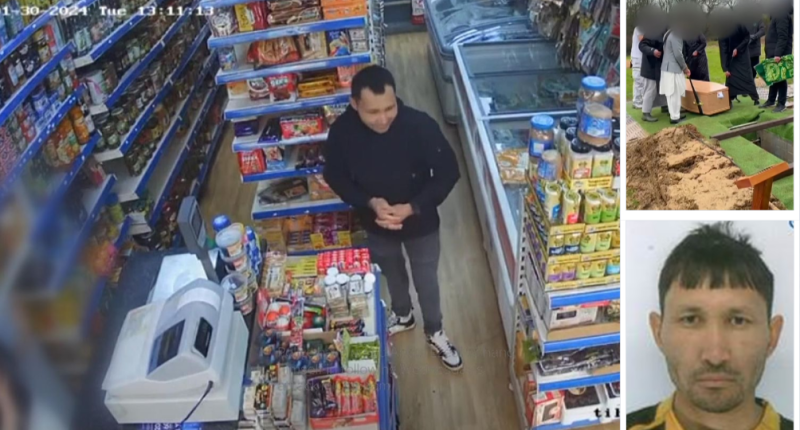The case of Abdul Ezedi, a 35-year-old Afghan national, has sparked significant controversy and raised serious questions about the UK’s asylum system and the handling of religious conversions and convictions. Ezedi was given a Muslim funeral and burial despite claiming to have converted to Christianity, which has led to widespread debate and criticism.
Ezedi was involved in a horrific chemical attack in Clapham, London, in January 2024, where he allegedly doused his ex-partner and her children with a corrosive substance. This incident led to a nationwide manhunt, and Ezedi’s body was later found in the Thames. Despite his criminal history, Ezedi was granted asylum in the UK on his third attempt, convincing a judge that his conversion to Christianity was genuine despite failing basic questions about the religion and having a conviction for sexual assault and exposure.

Ezedi’s conversion to Christianity was supported by a Baptist minister from Grange Road Baptist Church in Jarrow, South Tyneside, who testified that Ezedi had been a regular churchgoer for four years. The minister stated that Ezedi was not among those who fraudulently claimed conversion for asylum purposes. However, it was revealed that some of those who supported Ezedi were aware of his criminal convictions, and he had even signed an agreement to be escorted during church services.

The Home Office has faced criticism for allowing Ezedi to remain in the UK despite his criminal convictions and the concerns raised about the authenticity of his conversion. Shadow Home Secretary Yvette Cooper called for an explanation from Home Secretary James Cleverly regarding how Ezedi was able to stay in the country for two years after his first asylum claim was rejected, especially after he was convicted of sexual offenses.
Clapham chemical attacker Abdul Ezedi was granted asylum by a judge despite a ‘lack of credibility’ and failing basic questions about Christianity, documents show https://t.co/gbntZTqVdf
— LBC (@LBC) March 26, 2024
The case has also raised questions about the involvement of faith leaders in conversions and asylum applications. The Archbishop of Canterbury stated that there was “no evidence” to support claims that the Church of England was “subverting the asylum system” by allowing spurious conversions to Christianity.
Ezedi’s asylum case and the controversy surrounding his conversion to Christianity have sparked a debate on the overall issue of how asylum claims are decided, the role of faith leaders in asylum applications, and the need for more stringent checks on the authenticity of religious conversions. The case highlights the complexities and challenges faced by the UK’s asylum system and the need for further scrutiny and reform.
Don’t Miss | Candace Conrad and Tony Blosser on Charges of Child Neglect










